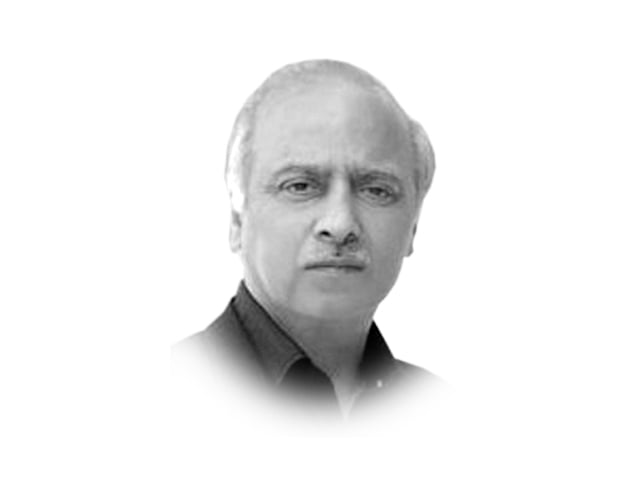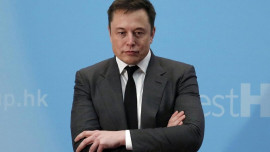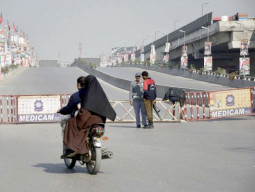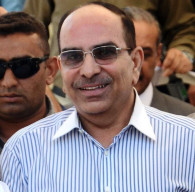
Convened by the Quaid-e-Azam fellow at St Anthony’s College, Oxford University, Dr Ishtiaq Ahmed, the conference drew prominent intellectuals from all places mentioned above, aiming to generate interest to re-engage Pakistan’s challenges at the intellectual, academic and policy level.
Pakistan’s disparate education system and the sociopolitical distortions it has brought about also featured prominently in the discussions, with Mosharraf Zaidi and Professor Saeed Shafqat underlining that the near abdication of quality and values’ education by the state had stymied public sector educational institutions’ progress.
The mantra of private schools being the panacea for the education sector’s ills must be dispensed with, Zaidi said, underlining the need to regularise all private schools and introducing a unified and harmonious curriculum, at least on religion, history and language.
One of the formidable challenges for Pakistan, as speakers pointed out, is the change of guards in the capitals of Pakistan’s eastern and western neighbours. They cautioned that with the possible elevation of Narendra Modi as the Indian premier and with a new president in Afghanistan, the Pakistani civilian and military leadership needed to review its existing prism on both countries and come up with a pre-emptive, bold and forward-looking policy of constructive engagement.
Based on his own research and interactions with Pakistani and Indian experts, Hannes Ebert of the German Institute of Global and Area Studies (GIGA) argued that a lack of boldness on the part of the Indian leadership is one of the core issues that dogs bilateral issues as the leadership wants to talk but not negotiate.
Ebert added that India-Pakistan relations have been frequently beset by shocks like the Kargil conflict 1999, Brasstacks in 1986, attacks on the Indian parliament building in December, 2001 and the Mumbai attacks of 2008.
Unfortunately, even shocks and external pressures, such as those by the US, haven’t caused any major reorientation in Pakistan’s India policy which, he said, is not likely to change in the short run. Bad news for Pakistan’s long-term interests, other speakers pointed out.
Pakistan’s lacklustre and incoherent response to terrorism, militancy and radicalisation also came under sharp focus. Chairman of the Forum for International Relations’ Development (FIRD), Toaha Qureshi, argued in favour of the UK model of counter-radicalisation which was rooted in principles of containment and engagement in which the community at large participates.
Following on the themes propounded by Zaidi and Shafqat, Qureshi also dwelled on the dire need for good education, saying that “radicalisation is to be tackled by education, dialogue and firm rehabilitation rather than military and war-like action”. This approach involves a social and religious mentoring process, involves free education, skill-based training and employment and enterprise opportunities.
Interestingly, nearly all speakers, including Dr Rasul Bakhsh Rais, underscored the need for enforcing rule of law as the primary pre-requisite to take on the many crises that afflict Pakistan today. Crises can turn into opportunities only if the rule of law and a strict focus on education can move in tandem. The ruling elites have to make that conscious decision today, speakers emphasised. Quality education today, or doom tomorrow, was the unanimous message.
Published in The Express Tribune, May 14th, 2014.
Like Opinion & Editorial on Facebook, follow @ETOpEd on Twitter to receive all updates on all our daily pieces.
COMMENTS (11)
Comments are moderated and generally will be posted if they are on-topic and not abusive.
For more information, please see our Comments FAQ




1736599343-0/fizza-(8)1736599343-0-165x106.webp)






1736508423-0/Express-Tribune---News-Desk-(9)1736508423-0-270x192.webp)

1736495887-0/sidra--(63)1736495887-0-270x192.webp)





@RD Sultan: Dictatorship breaks the nation, history is the proof.
@RD Sultan: "Only a dictator can ensure stability for Pakistan. There is no other alternative. "
Nostalgic for Zia - eh?
will the real Pakistani ruler stand up ?
Pakistan cannot and will not be able to address its problems, unless it passes through 2-3 smooth democratic turns. NS is ambitious, he needs time to settle against mountain of problems. Stop political unrest, focus on your province. Let him do the job and leave the rest to Public.
@Mr. Sultan, Can one marry an alien from Mars? How do you know dictator will solve our problems without even knowing his leadership skills. Do you dislike any of oast four dictators? If so, isnt it possible that You will dislike one more. By the time they will be done, your country would be inflicted with many more damages.
Nothing can be achieved without rooting out terrorism, neither can relations with neighbors improve. All other issues can be put into the secondary category, since they will become irrelevant without the first. Pakistan must learn to prioritize.
Leadership change in India and Afghanistan is not Pakistan's biggest problem.
The problem is the multiple power centres in Pakistan.
Pakistan claims it wants to be Democracy, but Civilian Supremacy is clearly lacking. Civilians can't even bring ISI under the Interior Ministry, the last Govt tried and was ORDERED to climb down.
Without this, the decision making process will non-existent. ISI will continue to support some Militants and fight some. At the end, Radicalism will devour Pakistan.
Mr sultan i think we should not always trust on these dictators.we should trust ourself and our democracy,so that's why we can make a stablility our region.These dictators are only beneficial for army not for democracy.If we Pakistani Peoples change thinking then we can change our country,not these dictators.
informative and precise article,, thanku Mr Imtiaz Gul
Only a dictator can ensure stability for Pakistan. There is no other alternative.
Pakistan leadership both in power and opposition must let the world know Pakistan is not a failed state and the civilian leadership is in control as in any free democratic country. It must also prove that it has the institutional capacity to uplift the country from its present morass. Our economic foundation is weak and our image abroad is scary. We have become a basket case and do others bidding for a few billion. The change in leaderships in Delhi and Kabul should not be viewed negatively but rather an opportunity to set a sustainable good neighbor policy. It is strange and sad that Afghans view Pakistan so negatively, bordering hate when so many Afghans have been educated and sheltered in Pakistan. One wonders why.